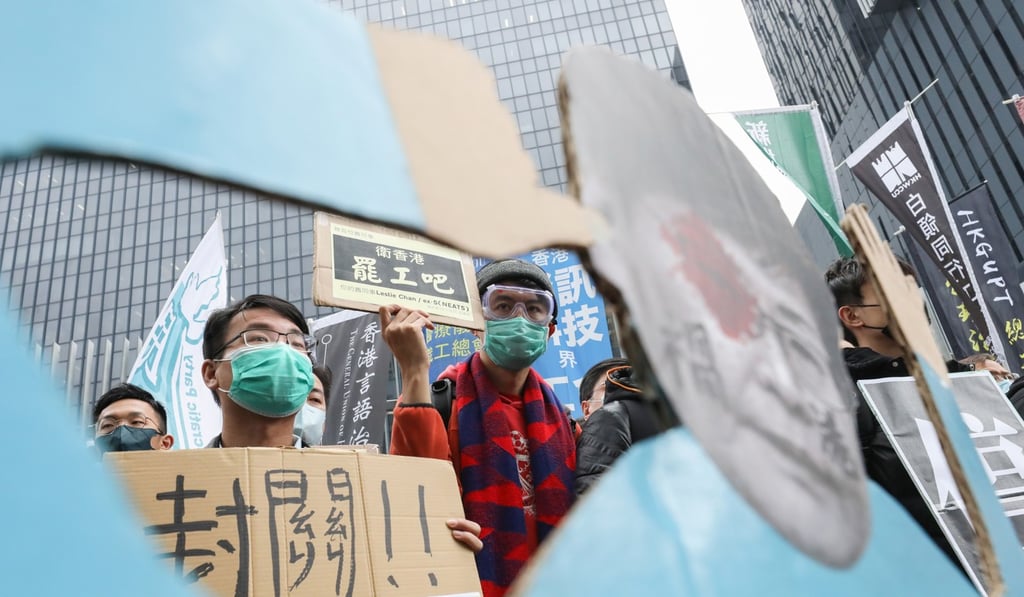Advertisement
Coronavirus: Hong Kong hospital workers vow to press on with strike as union rejects city leader’s quarantine plan for travellers from mainland China
- Hospital Authority Employees Alliance challenges effectiveness of Carrie Lam’s plan and criticises the lack of details
- Anyone entering city from mainland, including Hong Kong residents, have to comply with a 14-day mandatory quarantine period starting on Saturday
Reading Time:3 minutes
Why you can trust SCMP

A union for public hospital workers on Wednesday rejected the Hong Kong leader’s plan to implement mandatory quarantine measures on travellers arriving from mainland China rather than a full closure of the border to combat the new coronavirus, vowing to take its strike into the fourth day.
The Hospital Authority Employees Alliance said 7,000 took part in the third day of the strike – about the same as on Tuesday. The Hospital Authority, which runs the city’s public health facilities, said 5,100 staff were recorded absent. The alliance attributed the difference in the tally to staff on leave who would refuse emergency duties.
Hours after the strike resumed on Wednesday, with the alliance marching to the government headquarters in Admiralty joined by opposition lawmakers who supported the workers’ cause, the city’s leader Carrie Lam Cheng Yuet-ngor unveiled her new measures.
Advertisement

Lam announced that anyone entering Hong Kong from the mainland, including the city’s residents, had to comply with a 14-day mandatory quarantine period starting on Saturday.
Advertisement
She also shut the border at the Kai Tak Cruise Terminal and Ocean Terminal in Tsim Sha Tsui following confirmed cases on cruises in Italy and Japan.
Advertisement
Select Voice
Select Speed
1.00x